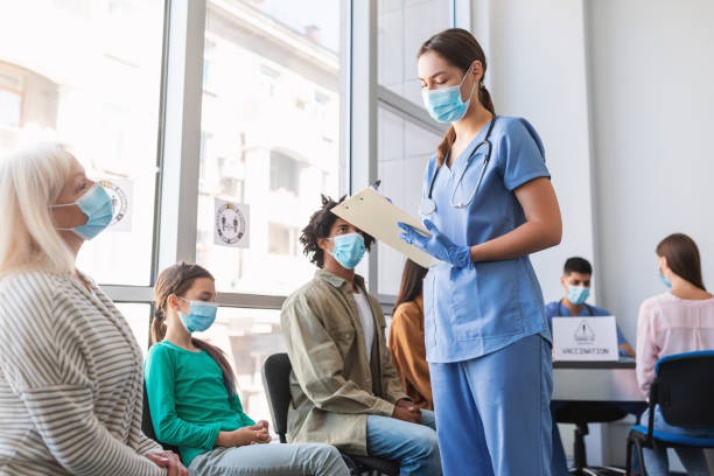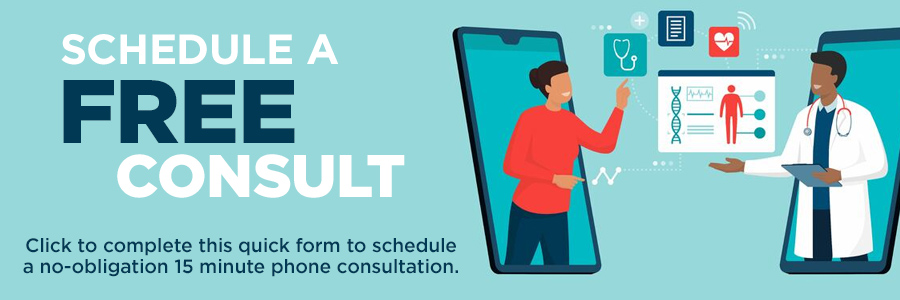There are many faces of Herpes Viruses: Varicella Zoster which causes Chickenpox and Shingles, Herpes Simplex which triggers cold sores and genital herpes, Epstein Barr, and various childhood viruses such as Roseola. While all these infections are a consequence of various strains of the Herpes virus, the one commonality is that after the initial infection, many of these viruses remain latent within your body’s nervous system until the virus are reactivated. So what are the differences between these various forms of Herpes?
Chickenpox
Chickenpox is a very contagious infection, commonly passed from child to child by oral and nasal secretions, but can affect adults as well. The easily recognizable symptom of chicken pox is a very itchy rash of red blisters all over your body. Chickenpox, while uncomfortable, is generally mild and not dangerous if contracted during early childhood with full recovery normally within 2 weeks. However, if you contract full blown Chickenpox as an adult and have never had it as a child (and/or have not been successfully vaccinated) the viral infection is often quite serious. Adults are at risk for varicella pneumonia, varicella meningitis or encephalitis, each of which can be fatal.
Shingles
Once you have had Chickenpox, the Varicella Zoster virus remains in your nervous system where it can be reactivated as Shingles. This reactivation of your old virus can occur, if you are immune-compromised by another chronic disease, or if you are immune-compromised by certain medications or chronic stress. Advanced age, poor diet, lack of sleep and other foundational problems can increase your chance of having Shingles.
The latent virus travels through your nervous system to your skin where it breaks out into painful blisters. The rash is band-like and follows a single skin nerve distribution known as a “dermatome”. The rash can last for several weeks and may be very painful. Worse, you may suffer from a post-shingles state with a lot of sensitivity, itching, burning, and pain, which can linger for months or even years.
Herpes Simplex 1 and 2
Herpes Simplex 1 typically appears as blisters around your mouth area and is transmitted through oral secretions such as sharing a toothbrush or kissing. Herpes Simplex 2 is sexually transmitted and the sores can be found around your genitals or rectum. The blisters can be itchy and painful and last a week or so.
Epstein Barr
The Epstein Barr virus is what causes mononucleosis, or the “Kissing Disease,” appropriately nicknamed because of the common way it is spread through teenagers. Fatigue, fever, sore throat, swollen glands, achy muscles, and a rash are likely with this virus. Although, the acute phase of the virus can pass within 2 weeks, post-viral chronic fatigue can persist for several months.
Roseola
Roseola is normally a mild infection that mainly affects children under the age of 2. Usually present with a fever and a rash of pink patches or spots, your symptoms go away within a few days.
Herpes Viruses latent re-activation symptoms
Anyone who has been infected with any of these Herpes viruses is all too familiar that the virus can lie dormant for periods of time, only to be subject to an attack (outbreak) due to the following conditions:
- General sickness- anything from a mild cold to a serious condition
- Menstruation
- Fatigue
- Physical stressors (lack of sleep, poor diet, extreme training or workload) and/or emotional stress
- Immunosuppression due to illness, pregnancy, or even medication
Besides the overall symptoms and feeling unwell, the blisters that break out onto your skin are unsightly and embarrassing. Patients are ferociously researching and looking for any way to cover up, treat, decrease symptoms, and minimize healing time of these skin sores. So what can be done to help?
Over the counter remedies and topical treatments
If you peruse the aisles of your local drug store, you will see everything from balms with at least 1% lemon oil, lemon tea and compresses, peppermint oil, witch hazel oil, aloe vera gel, licorice root, echinacea, lysine cream, and other very expensive over the counter topical creams promising to speed up healing of sores. Additionally, there are countless over-the-counter drugs designed to diminish the symptoms of pain, itch and other discomforts. The efficacy of these various remedies is debatable, but they may offer temporary relief for some people.
Prescription Anti-Viral Medications
There are several, oral, antiviral medications that your doctor can prescribe. These drugs can alleviate pain and minimize symptoms, if administered upon the onset of an outbreak (within the first 2-3 days). But with any medication, you can experience side effects such as headaches, body aches, nausea, upset stomach, diarrhea, etc.
Vaccinations
Vaccination for childhood chicken pox or adult Shingles may be helpful for certain people. However, the vaccinations are not 100% effective and can exacerbate excess immune stimulation in previously immune sensitized patients. Therefore, you and your doctor should assess the risk/benefit ratio for your use of these vaccinations (as it should for all treatment modalities).
Holistic/Metabolically Directed Approach
A holistic/metabolically directed approach to Herpes virus would be to optimize functioning of your body systems. In other words, you want to improve the functioning of your immune system, nervous system and endocrine system. This fundamental approach to help prevent or minimize outbreaks of any of the Herpes viruses is to make you as healthy as possible so your body can handle the oncoming stress. This holistic/metabolically directed approach has zero risk, while simultaneously offering enormous benefits. It is very important that you keep in mind that even “natural” remedies can cause adverse reactions. For example, studies have shown that Echinacea can actually “boost your immune system” by shifting your TH1/TH2 balance towards more TH1. This increased TH1 (also known as cellular immunity) may be beneficial if you are TH2 (also known as humoral immunity) dominant. However, if you already TH1 dominant, taking Echinacea can actually worsen an auto-immune state.
A metabolically directed holistic approach does not treat symptoms and incorporates TH1/TH2 balance into therapeutic interventions.
Stress makes a Mess
Consider this: when you are stressed, what happens? You may not eat well, you may sleep poorly, or you may have an extra alcoholic drink to feel relief from your stress. Therefore, instead of treating yourself better under stress, you are adding to your stress by unhealthy coping mechanisms.
Whether you decide to use pharmaceutical anti-viral medications, natural herbs, OTC remedies or vaccinations, monitoring yourself for signs of excess stress and learning to self -heal and de-stress is a vital skill that you should practice on a regular basis.
In a previous blog, I wrote about 7 simple habits you can easily adopt to improve your health. These foundational habits are the first step in your personalized metabolically directed program. You have heard the saying; an ounce of prevention is worth a pound of cure? These tips can truly help you feel your best so that your body can be at peak performance to minimize an outbreak of all of the various incarnations of Herpes virus.
Have you recently fallen ill with Shingles? Do you get recurring cold sores? Come in for a consultation with Dr. Rothman by calling (732) 268-7663 and begin living a life of metabolically directed wellness today!











